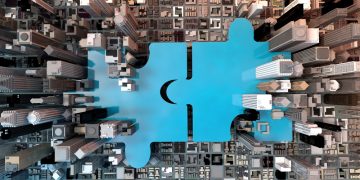Antonis Trakakis, Technical Manager, Arista Shipping, responded to GREEN4SEA questions regarding company’s plans and aspirations for the next year. Mr Trakakis said that Arista Shipping, being the leader of a joint development project called Project ‘Forward’, will commit further to adopting LNG as fuel to commercial vessels in 2017 as well.
GREEN4SEA: Do you think there was a significant success and/or progress made with respect to marine environment protection during 2016? Focusing on your area of expertise, what were the most important industry developments within 2016?
Antonis Trakakis: The year 2016 is a significant year and brought several developments in regard to environmental protection. To my humble opinion the most important developments have been the entry into force of NOx Tier III and the decision for the global sulfur cap in the fuel as of Jan 1, 2020. Please allow me to exclude the ratification of ballast water treatment; the development of new guidelines (G8) underlines that current systems are still lagging to ultimate goals and we would better wait before installing a system on board. The entry into force signifies that it is clearly a market driven measure with poor, if any benefit for the society, and certainly no benefit for an owner.
G4S: Focusing on your area of expertise, what do you think that it will be the biggest marine environmental challenge(s) for the industry for the 2017?
A.T.: Since it involves both existing and newbuilds, I think the biggest challenge in 2017 will be to prepare (in technical and financial terms) for the installation of ballast treatment. I believe solutions will be found though, even if scrapping of vessels (especially also driven by the 0.5% cap) will be part of this. Although of equal importance for the future shape of ships, will be to find a way for compliance with NOx Tier III. Unlike to scrubbers, this is mandatory and the current technology of SCR is still not mature or trustworthy, this opening wide the door to LNG as fuel. In case newbuilding activities revive, shipyards have maintained some slots for avoiding to meet NOx Tier III, but ultimately it is well in front of us in the pipeline and solutions are not there yet (except lean burn Otto cycle running on LNG)
G4S: What would be the 2017 resolutions for your company/ organization? What are your goals and aspirations to enhance environmental excellence? Do you have any new projects on the pipeline and/or plans for 2017 that you would like to share?
A.T.: For Arista Shipping the goal we will continue to pursue is the further development of Project Forward, aiming to apply LNG as fuel to commercial vessels. Through our co-operation with Shell we believe that infrastructure is not going to be a prohibiting factor for the adoption of LNG as fuel. Although more effort is needed before placing a firm order to shipyard for building such ships, we are optimistic that we are coming very close to this day. An issue that we will most probably get to know more in 2017, is what will be the spread in price differential of 0.5% and current liquid fuel. Current expectations suggest a very big difference for the first years, and this will possibly force ship owners in very important decisions.
The views presented hereabove are only those of the author and not necessarily those of GREEN4SEA and are for information sharing and discussion purposes only.





























































